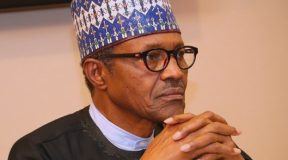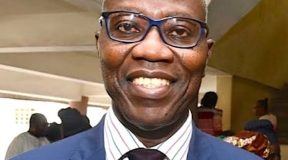Delta State Government has distributed 760 sets of furniture to three public secondary schools in the state in continuation of the distribution exercise which began in March this year.
The State Commissioner for Basic and Secondary Education, Chief Patrick Ukah, represented by an Assistant Director in the Department of Planning, Research and Statistics, Mrs Clementina Ojumah, led a team that inspected the chairs and tables in the three schools.
Information from Delta State Ministry of Information, made available to OpenLife stated that Dore Numa College, Warri, Warri South Local Government Area, received 300 students’ tables and chairs, 20 tables and 20 chairs for teachers, Hussey College, Warri, Warri South Local Government Area, got 250 students’ tables and chairs, 20 tables and 20 chairs for teachers, and Naifor Island Secondary School, Naifor Island, Warri South West Local Government Area, also received 150 students’ tables and chairs, 20 tables and 20 chairs for teachers.
The Principal of Dore Numa College, Comrade Dimas Ejoh, and the Secretary of the community, Mr. Godwin Oburoh, conducted the inspection team round the classrooms and halls where the items have been assigned.
At Hussey College, the Principal, Mrs. Margaret Oputu, and the Chairman of the community, Mr. Patrick Ikolo, did the same, while the Principal of Naifor Island Secondary School, Mr. Oporoza Saibakumo, the Secretary of the community, Mr. Godfrey Okpe, and the Chief Inspector of Education in Warri South West Local Government, Miss Eduvie Anuma, conducted the team round.
The Information Ministry added that the distribution exercise continues throughout the state.
Meanwhile, as part of activities to mark the 2020 World Blood Donor Day celebration, residents of the state have been called upon to stand up and be counted among those that would donate blood to safe lives.
The Delta State Commissioner for Health, Dr Mordi Ononye made the call in Asaba during his state-wide broadcast as part of activities to mark the 2020 World Blood Donor Day celebrated on the 14th day of June every year.
According to the commissioner, the campaign theme for this year’s celebration is “Safe Blood Saves Lives” with the slogan “give blood and make the world a healthier place”.
Ononye explained that blood donations were needed all over the world to ensure that individuals and communities have access to safe and quality-assured blood and blood products in both normal and emergency situations.
He said that the campaign was aimed at the contribution of individuals to improve health in their communities, adding that through the campaign, more people all over the world were called to become life-savers by volunteering to donate blood regularly.
Dr. Ononye said blood transfusion saves lives and improves health but many patients requiring transfusions do not have timely access to safe blood.
“Providing safe and adequate blood is an integral part of the national health care policy and infrastructure. Hence, the Day and the theme are a call to action for governments, national health authorities, national and state blood transfusion services to provide adequate resources and put in place systems and infrastructures to increase the collection of blood from voluntary, non-remunerated blood donors; promote and implement appropriate clinical use of blood; and to set up systems for the oversight and surveillance on the whole chain of blood transfusion” he said.
The commissioner said that while the need for blood and blood products was universal, it was sad to realise that access to safe blood and blood products varied greatly across and within countries.
Dr. Ononye revealed that his ministry had embarked on blood donation drives since 2018 at Idumuje-Unor, Oghara, Asaba, Sapele, Warri and Oleh, saying it was to build capacity of health workers to promote voluntary non-remunerated blood donation at health facilities and that a total of 43 pints of blood had been donated voluntarily through these drives.
Speaking further he said the benefits of organising blood donation drives include – creating a rare blood type registry; capacity to provide a high number of pints of blood if needed; reduction in expenditure in obtaining blood and blood products.
He explained that the re-activated Emergency Ambulance Service was now used for emergency transport of blood products; supplied blood banks to hospitals and repaire those that were not functioning; and Deltans enrolled in the Contributory Health Scheme of this administration, have free access to blood as part of the benefit package.
He listed factors such as ignorance, staff shortage, poor professional and political commitment among others as responsible for people not imbibing the culture of voluntarily blood donation
He revealed also that health workers would be at Delta State University Teaching Hospital, Oghara, Federal Medical Centre, Asaba, Central Hospital Warri, Central Hospital Agbor and State Secretariat Clinic Asaba to receive blood donations from well-meaning Deltans to mark the day.
The commissioner said that all voluntary blood donors would be presented with a Certificate of Appreciation as evidence of their charitable act in addition to other gifts.
He used the medium to single out for special appreciation UNIBLOOD, an indigenous non-governmental organisation founded by His Royal Majesty, Obi Charles Chukwunwike Anyasi III, JP – the Obi of Idumuje-Unor, for its Universal Blood Initiative and passionate advocacy in voluntary blood donation, as well as control of haemolytic disease of the newborn.
The health commissioner assured residents that blood donation was safe for adults and beneficial to both the donor and the recipient, adding that helping others could help reduce stress, improve emotional wellbeing and physical health, especially in this challenging time of the COVID-19 pandemic.







